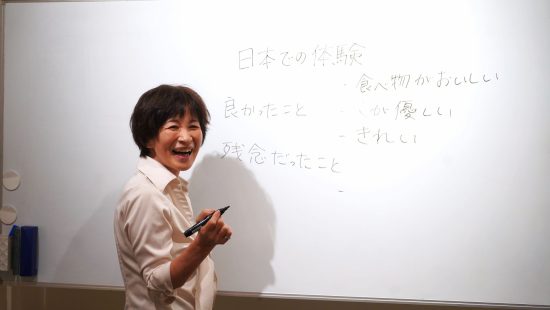|
What Should I Major In: Foreigners’ Options for the Best Field of Study in Japan

It must be a dream to study in Japan. Well, it was mine, and before I decided to go for it, I had to consider a few things. Unquestionably, one of the greatest places to study is Japan. I had always thought that studying in the country of the rising sun would be the ideal choice due to its rich history and culture, economic clout, and top-notch colleges. But before I really left to begin my educational journey as a foreign student, I had to decide on one very important question: “What do I major in?”
What Should I Major In: Foreigners’ Options for the Best Field of Study in Japan
Of course, we often have our minds made up when we consider attending a university. Prior to enrolling in college or pursuing a master’s degree, we should ideally already be aware of what we want, and all of our choices should work toward that end. But if you’re an international student, particularly if you decide to study in Japan, things are quite different.
Japan distinguishes itself from other nations. It has a long history, and its culture is unmistakably unique from that of the other East Asian countries. Unless you’re devoted to learning the language and the culture, studying abroad is a significant task! You should consider your own aim as well as the possibility that your native country’s educational system differs from that of Japan.
I want to help you make your first major choice—choosing your subject of study—in this post. Although my objectives may not be the same as yours, foreign students in Japan have certain comparable experiences. You’ll probably need to think about a few things, which I had to evaluate as well. If your ultimate objective is to study in Japan, continue reading to make sure your course of study is also very certain:
Linguistic ability
Even though you’ve certainly heard about this advice numerous times, studying a language is quite helpful when deciding on a course of study. As generic as it may sound, your degree of Japanese language ability may have an impact on how well you are able to learn in Japan. However, Japanese institutions also offer degree programs in English and are affiliated with American universities. What are you doing with your Japanese language skills?
For my undergraduate studies, I chose to major in Japanese Language and Studies and pursue a Bachelor of Science in International Studies. I was prepared to take on the challenge of learning in Japanese since my level of language ability was N3 when I made the decision to study in Japan. In order to fully experience Japanese culture, I also wanted to study there in Japanese alongside Japanese classmates. My pursuit of this objective led me to Japanese colleges that provide the degree programs I was interested in.
You might always enroll in a few short-term Japanese language courses initially if your Japanese language abilities still require improvement. I made the decision to join JaLS GROUP after I graduated in order to further my Japanese language development. The Hokkaido and Kyoto locations of the multi-awarded Japanese language school are the first and only ones in Japan to get Equals accreditation. Together with other international students, I honed my talents and traveled Japan to get first-hand knowledge. I was finally prepared for college after that!
Alternatives to the Japanese language school include American colleges in Japan. You will study mostly alongside other English-speaking foreign students at these institutions, which use the American academic calendar. You may still improve your abilities since Japanese language lessons are included in the curriculum of programs in English for international students!
Uncertain about the degree you should pursue in Japan? Your choice of college or university, and ultimately your choice of study area, may be influenced by your language ability. Programs at several colleges in Japan may call for a higher level of proficiency in the Japanese language. You may then see what areas of study are offered from there!
Realisticism or passion?
The two main reasons to get a degree are passion and work. To me, your subject of study should be where your passion lies. Studying something you’re not interested in might be challenging. But you may also think about what area of study will get you where you want to go when you finish. You may carefully guarantee your future with them while working hard now. Is it feasible to get a free education in Japan? Yes, it is with the aid of Japanese government scholarships!
You shouldn’t have to decide between your passion and your wallet in an ideal world. What if that’s the case, though? Since you will be living in Japan for at least a year while you are a student, you must discover methods to support yourself while you are learning. Could these factors influence your decision about your subject of study?
In my case, I was given a stipend and free education in Japan, which I utilized to cover my living expenses. I just took employment so I could pay for other activities and enjoy my time in Japan to the fullest. This implies that ideally, your topic of study should provide you time for extracurricular activities. The majority of foreign students enter Japanese institutions on scholarships. After all, depending on your subject of study, living as a foreign student might be pretty expensive!
Consider your priorities and sources, then put your alternatives on the table if you ever find that passion and pragmatism are battling for your attention. There must to be a useful approach to follow your interest! Getting a degree in Japan, whether it be an undergraduate, master’s, or PhD, is ultimately a path to a successful future!
Conduct research
What advice would you give someone picking their topic of study in Japan? Research! Yes, researching all of your possibilities may aid in decision-making. Scholarships, degree options, and renowned institutions of higher learning? Study up on them! I wouldn’t have had the courage to launch my study plans and submit an application for a scholarship if I had ignored researching about studying in Japan in general. Before I began learning about my future topic of study in Japan, I also had sufficient knowledge about it.
You may choose from a variety of prominent Japanese universities. To mention a few, there is the University of Tokyo, Sophia University, and Hokkaido University. You might take courses in corporate management, global studies, global environment studies, and green science and engineering. When you do your study, you’ll realize how many possibilities you have! The future? You could discover a subject area that is associated with your undergraduate degree. You could even decide to pursue something that would advance your career in ways you never imagined!
It is vital to arm yourself with all the information you need so that you may choose the area of study where your future lies. Online resources include about all of what you need to know about studying in Japan. Asking the appropriate people—such as other foreign students, guidance counselors from your former school, or the Japanese consulate in your area—can also be beneficial. Up till you have a distinct understanding of what you desire, do considerable study. You’ll be calmer in this situation while considering your area of study.
Conclusion
Although it might be difficult, studying abroad in Japan is one of the finest experiences you can have. And after you’ve chosen the subject area that’s best for you to pursue, you may go on with your objectives. If your only current certainty is that you want to study in Japan, that’s alright. It occurs!
The task of “Choose field of study” might soon be crossed off your list. Determine your level of knowledge of Japanese culture and language before moving on to how you want to pay for your study. By doing research and making a choice, you may ignite your enthusiasm. Observe patience! It’s an experience, but getting that degree in Japan will undoubtedly be worthwhile. I wish you luck!






